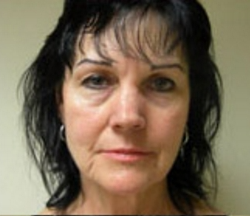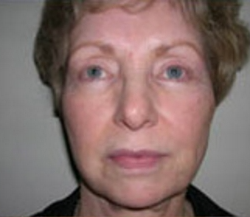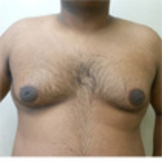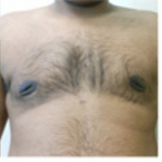Male Breast Reduction
Conveniently located to serve the areas of Atlanta and Duluth, GA

Gynecomastia is the technical term for large breasts on the male body. This condition is often caused by an imbalance of estrogen and testosterone hormones, but it is also a side effect of various medical conditions, medications, and obesity. While the issue is often the subject of jokes and ridicule, this is a serious medical condition that negatively impacts the lives of afflicted patients, both physically and mentally.
Each instance of gynecomastia is different, but at Atlantic Center for Plastic & Cosmetic Surgery, Dr. R. Morgan Davoudi has achieved success for countless patients using a vast array of methods and techniques. If your gynecomastia is affecting your health and happiness — even in the slightest — then we encourage you to make a change. Take the first step by booking a consultation appointment with Dr. Davoudi at our Duluth office and begin planning your ideal, personalized gynecomastia treatment. If you have any additional questions or would like to speak to one of our team members directly, please do not hesitate to call us at (770) 418-1234. We are always happy to assist current and potential patients in any way we can.
Contents
Before and After Photos
About Gynecomastia
Gynecomastia can arise from many issues like hormonal changes, side effects from medications, stress, and more. This condition can occur in one or both breasts and can affect individuals of any age, from infants to older adults. In the United States, an estimated 30% of men experience some degree of the condition. (1) While the issue itself is not directly life-threatening, the presence of excess breast tissue can sometimes lead to psychological distress, with many men feeling embarrassed or self-conscious about their appearance. The chest area can become an area of anxiety, causing individuals to avoid situations like swimming or changing clothes in public settings.
Fortunately, gynecomastia can be treated with standard tissue reduction methods, and Dr. Davoudi has earned a reputation for success in his procedures.
Benefits of Male Breast Reduction
Addressing gynecomastia can revitalize your life and boost your happiness in countless ways. Just some of the benefits our patients experience are:
- Increased Confidence: Many patients report greater self-esteem and improved body image after surgery.
- Enhanced Body Contour: The procedure provides a flatter, masculine chest profile that aligns with societal ideals.
- Improved Physical Comfort: Reducing excess tissue can alleviate discomfort caused by chafing, especially when exercising or wearing fitted clothing.
- Surgical Precision: Dr. Davoudi utilizes advanced techniques for optimal contouring and minimal scarring.
- Customization: The surgical approach is tailored to the patient’s unique anatomy, targeting specific areas of concern.
- Psychological Wellbeing: Resolution of gynecomastia may reduce anxiety related to body image, allowing patients to engage in social activities with more ease.
- Quick Recovery: Modern techniques minimize downtime, allowing individuals to return to their normal routines relatively quickly.
- Long-term Results: Surgical outcomes are often permanent, provided patients maintain a balanced lifestyle post-surgery.
Candidates
Candidates for gynecomastia surgery typically include men who:
- Experience noticeable breast tissue growth
- Are physically healthy with no serious medical conditions that could complicate surgery
- Have realistic expectations regarding surgical results
- Are psychologically prepared for the changes that will result from surgery
- Are past adolescence if their gynecomastia is not attributed to hormonal changes typical of puberty (2)
If you are tired of trying to hide your male breasts and are turning down opportunities to socialize because of this condition, resolve these issues with one simple surgery. Call Atlantic Center for Plastic & Cosmetic Surgery to schedule an initial consultation.
Personal Consultation
Your initial consultation allows you to ask questions about the procedure and Dr. Davoudi the opportunity to examine your chest. He will take pictures and use 3D computer analysis to determine whether your goals are realistic and to form his professional recommendations. He will explain all the risks associated with your procedure and tell you exactly what it may involve.
If you decide to proceed and Dr. Davoudi determines that your expectations are realistic, you will return for a pre-op appointment approximately two weeks before your scheduled procedure. You will discuss anesthesia and other technical arrangements, and then you will receive instructions for preparing your body for the surgery. Feel free to ask questions during both of these consultations so that you have the information needed to make the best decisions for your body.
Dr. Davoudi will use his education and experience to determine the best surgical techniques to complete your gynecomastia treatment successfully. Some of the decisions that he will make during your initial consultation include:
- The best location for the incisions
- Repositioning of the nipples (if necessary)
- Sculpting and reshaping for a natural look
Preparing for Male Breast Reduction
Preparation is key to achieving an optimal outcome. Once your surgery has been scheduled, it is important to follow these guidelines:
- Discontinue blood thinners, supplements, and any medications that may interfere with the procedure, as directed by Dr. Davoudi.
- Stop using nicotine products two weeks before surgery and refrain from use during your recovery period.
- Arrange for transportation home after the procedure if sedation or general anesthesia will be utilized.
- Plan to take adequate time off work for recovery, typically one to two weeks depending on the nature of your employment.
- Follow all pre-operative instructions meticulously to ensure a seamless experience on the day of surgery.
Procedure
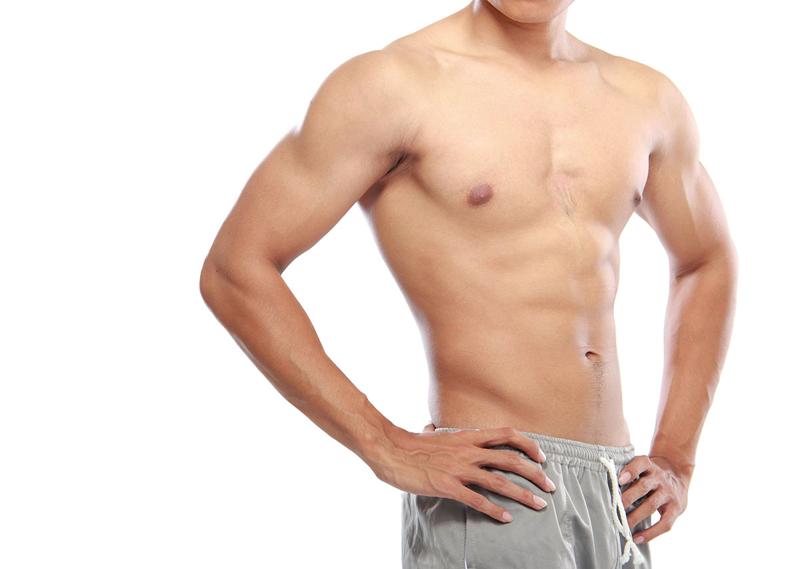
Dr. Davoudi is a board-certified plastic surgeon with years of experience performing a variety of breast surgeries. For the safety of all patients, these procedures are performed in surgical centers attached to hospital facilities.
The procedure is completed by creating incisions in the breast through which excess skin, fat, and breast tissue are removed. During the procedure, Dr. Davoudi will first make incisions into the targeted tissue. From here, he will insert a liposuction cannula to remove the adipose tissue (body fat) with medical suction. Alternatively, Dr. Davoudi may employ surgical excision techniques to remove the excess tissue. (3) These techniques involve the precise removal of tissue through incisions. In most cases, patients’ procedures will feature a combination of both liposuction and surgical excision.
Recovery
Everybody recovers at a different pace, and you will receive clearance from Dr. Davoudi to return to daily activities when your body has healed properly. It is important to keep all follow-up appointments to ensure that your chest is healing as expected. You can expect to rest for at least a week following surgery. You will wear bandages around your chest to protect the incision sites, and you will take medication for pain and the prevention of infection. Your first clearance will allow you to return to light activity, and you should receive the final clearance to enjoy more vigorous tasks within a month of the procedure.
Results
Once fully healed, you can expect to see a flatter, well-contoured chest. Most patients notice a significant improvement in the appearance of their chest, experiencing newfound confidence in both their personal and social lives. Scarring will mature and fade over time, blending nicely with the skin.
Corresponding & Complementary Procedures
Liposuction in other parts of the body is sometimes combined with male breast reductions to offer patients optimal outcomes from their procedures. Reducing excess, loose skin around the arms with an arm lift can help to create a further enhanced appearance for your torso and upper body. If you are interested in other forms of surgery, make sure to discuss your options with Dr. Davoudi during your initial consultation. Dr. Davoudi also offers thigh lifts, tummy tucks, and many other male cosmetic procedures to help you achieve your ideal body goals.
Cost of Male Breast Reduction in Atlanta
The exact cost of male breast reduction surgery depends on a variety of factors, including the amount of breast tissue, skin, and fat removed. You can call our Duluth office at (770) 418-1234 for a general overview of costs, or schedule your consultation to receive a detailed explanation of the cost of your procedure.
FAQ
What causes gynecomastia?
Gynecomastia can be caused by hormonal imbalances, obesity, certain medications, or health conditions.
How long is the recovery period for male breast reduction?
Most patients can return to regular activities within a week, while full recovery may take anywhere from 4 to 6 weeks, depending on the volume of tissue removed.
Will there be visible scarring after the procedure?
Scarring largely depends on the technique used. With careful incision placement, any scarring should be minimal and well concealed over time.
Are there non-surgical alternatives to treat gynecomastia?
While lifestyle changes and weight management might benefit some patients, definitive results usually require surgical intervention for pronounced cases of gynecomastia.
References
- Polat S, Cuhaci N, Evranos B, Ersoy R, Cakir B. Gynecomastia: Clinical evaluation and management. Indian Journal of Endocrinology and Metabolism. 2014;18(2):150. doi:https://doi.org/10.4103/2230-8210.129104
- Swerdloff RS, Chiu Ming Ng. Gynecomastia: Etiology, Diagnosis, and Treatment. Nih.gov. Published July 7, 2019. https://www.ncbi.nlm.nih.gov/books/NBK279105/
- Vandeven HA, Pensler JM. Gynecomastia. PubMed. Published 2020. https://www.ncbi.nlm.nih.gov/books/NBK430812/
